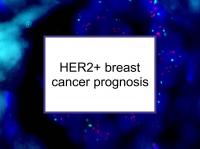Trastuzumab (Herceptin) and similar drugs have greatly improved the outcomes of women with HER2-positive (HER2+) breast cancer. However, swift and appropriate treatment is important once breast cancer, especially aggressive forms such as HER2+ disease, is diagnosed and treatment begun.
Latest research finds 6-month trastuzumab delay could affect survival
The study referenced at the beginning of this news article was designed to investigate the impact of delaying the start of trastuzumab treatment for more than six months after breast cancer diagnosis on (1) time to relapse; (2) overall survival; and (3) relapse-free survival among women with non-metastatic HER2+ breast cancer. To conduct the study, the authors identified women in the U.S. Department of Defense health claims database who were treated between 2003 and 2012 with trastuzumab after breast cancer surgery without having received any systemic therapy before surgery. The 2,749 women were divided into two groups based on time from breast cancer diagnosis to beginning of trastuzumab treatment: up to six months (79.9% of the women) and greater than six months (20.1%).
Women who began taking trastuzumab at least six months after diagnosis were found to have approximately 50% higher risk of relapse and 43% higher risk of death compared to those who started trastuzumab within six months of diagnosis. The authors conclude that delays of over six months in the initiation of trastuzumab among HER2+ Stage 1-III breast cancer patients are associated with a higher risk of relapse and shorter overall and relapse-free survival.
Please click on the tag treatmentDelays for more information on the impact of treatment delays on prognosis.
